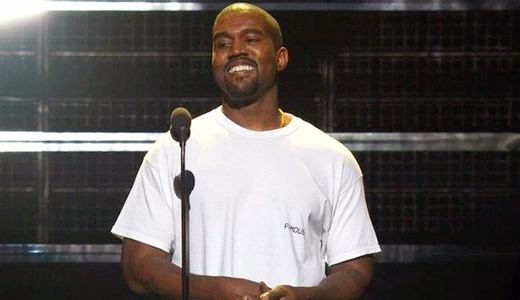The Monday morning after MTV’s Video Music Awards has often been a cultural watercooler moment in a culture that has fewer and fewer of those moments these days. Whether it’s Miley twerking on Robin Thicke (2013), Madonna and Britney kissing (2003) or Madonna’s risqué performance of “Like a Virgin” at the very first VMAs back in 1984, the telecast has a long, checkered history on MTV—a cable network that has worked very hard to stay relevant in the digital age.
Many of those years, the Video Music Awards have been the lead story in our Monday Culture Clips feature. This year, however, well … not so much.
I confess I didn’t watch the broadcast. It seems I didn’t miss much worth reporting. Instead of reading stories about who behaved badly or who wore too little, I mostly saw headlines about how much Beyoncé’s daughter’s dress cost, how many minutes her performance took, how Drake professed his love to Rihanna, and how Jimmy Fallon imitated disgraced Olympic swimmer Ryan Lochte (complete with dyed hair).
Oh, sure, there was some bad behavior. Nick Jonas wore really tight pants. Britney grabbed a fellow male performer’s crotch. Et cetera. But in 2016, those moments failed to generate the kind of “gotta talk about it” shock that previous years’ broadcasts have stoked. In fact, there was so little to talk about, really, that we didn’t even bother with a VMA Culture Clip at all.
Maybe it’s just me getting older. I was around when there was still actually music on MTV, after all. Even so, I wonder if MTV’s entire paradigm is just starting to feel more and more … irrelevant.
Turns out I’m not the only one making that observation.
Writing for Salon, Marc Spitz chronicles his own personal VMA journey.
“Somewhere in some bedroom, there might be a teenager counting down the days to the big night,” he says, just as he once did back in the day. “It would not be appropriate for a 46-year-old man to gear up hard for this spectacle, but to go from all-in to ho-hum, especially when I still follow and often write about music and culture, seems odd. Have the VMAs changed or have I changed? Once, they mattered. I don’t know why. Maybe it was because back in 1984, when I watched the inaugural awards, it all seemed so new and thrilling. They were, then, a legitimate alternative to the standard awards show. You could tell by the statue: an ungainly Moonman. And at that point in time, there were still few places you could actually see your favorite stars talk or wear clothes that they didn’t wear in their videos. Celebrity culture was still relatively narrow.”
Of course, by any measure, celebrity culture is anything but narrow these days. More like omnipresent. Which perhaps is at least one reason why the VMAs’ carefully engineered spectacle doesn’t seem (to some at least) to be the must-see TV it used to be.
Meanwhile, New York Times’ music critic Jon Caramanica notes that, once upon a time, MTV was the gateway to fame. Its behind-the-scenes gatekeepers played a potentially determinative role in whether someone ended up as a star or a nobody. These days, in contrast, the VMAs are just one spectacle among a smorgasbord of opportunities for hungry young artists to attract attention. For young stars, MTV has lost much of its relevance.
Take the winner of MTV’s Michael Jackson Video Vanguard Award Sunday night. Writes Caramanica: “The prize was given to Rihanna, who was born in 1988, which means that by the time she was a teenager, MTV was well into its post-Real World transformation. She is an icon of a later generation, aware of how pop stars once were made, but also how they’re made now, which is by social media and, in her case especially, the successful public transmission of attitude.”
He then adds:
That Rihanna has already reached Vanguard level underscores an impending problem for the V.M.A.s. For members of that next wave—Taylor Swift, Drake, Lady Gaga, Nicki Minaj, Miley Cyrus—MTV is not a gatekeeper, it’s a playground. That doesn’t mean the end of the music videos—if anything, the form is experiencing a creative revival—but the end of the last generation of stars who owe MTV any measure of their success. That’s why at this stage, the awards themselves are relatively meaningless. … Before long, a generation of pop stars won’t have much of a relationship to MTV at all, which is inevitable.
On the one hand, it’s tempting to say, “Good riddance.” But MTV’s potential drift toward irrelevancy isn’t really good news. Rather, it’s simply a symptom the huge changes we’ve seen in the culture. No longer do outlets like MTV serve as monopolistic, cultural trend-setters. Now, young music fans have myriad other options for discovering what’s cool, what’s hot, what’s interesting to them.
And that means that those of us who are interested in guiding their decisions have to be even more vigilant and engaged than we were when Madonna first cooed about being “Like a Virgin” back in ’84.






Recent Comments